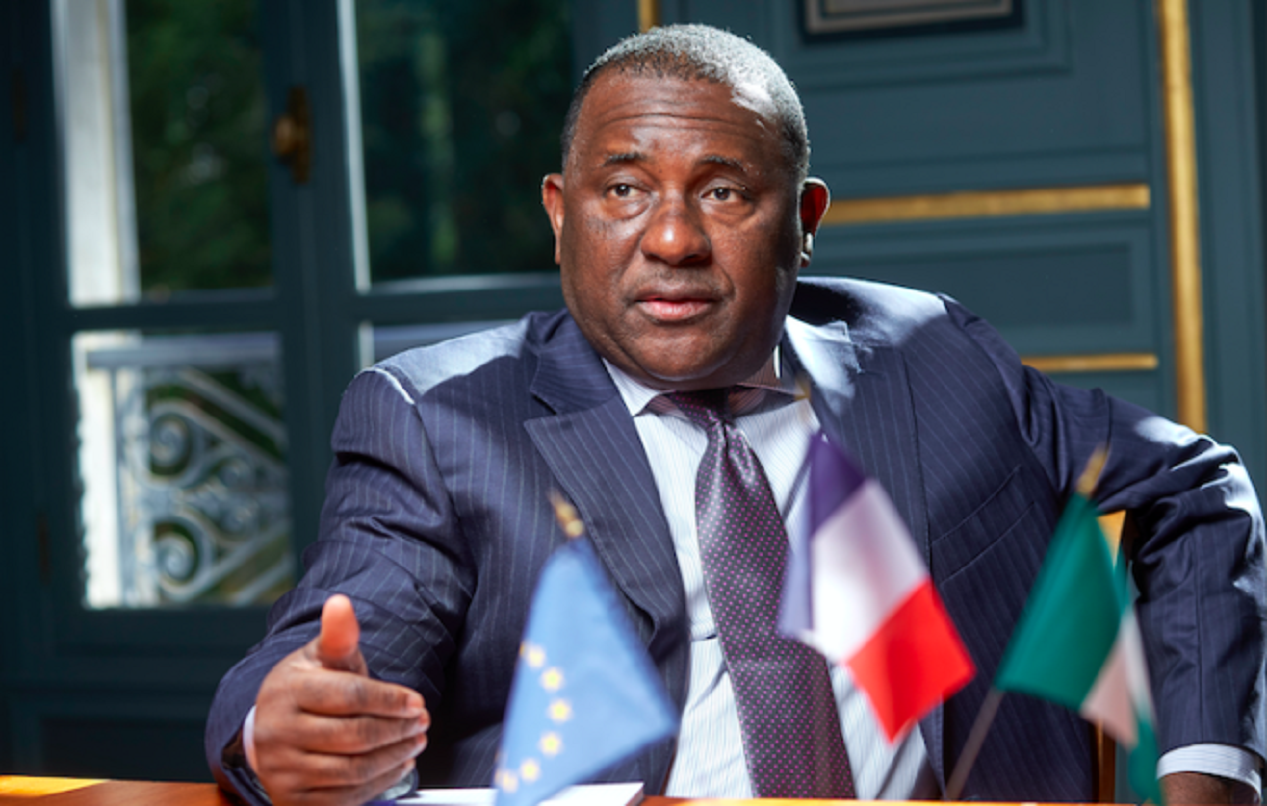Business
It’s cheaper to transport container from China to Lagos than Lagos to Kano — BUA Chairman

Alhaji Abdul-Samad Rabiu, a Nigerian business mogul, says it is cheaper to transport a container from China to Lagos than to transport same from Lagos to Kano.
Rabiu, the Chairman and CEO of BUA Group, disclosed this in Paris while speaking on the enormous opportunities to invest in the Nigerian transportation system, particularly the rail sector.
The News Agency of Nigeria (NAN) reports that cargo containers are transported from China and other countries through the sea while moving the container to the far North and other parts of the country is by road transportation.
Rabiu however commended the administration of President Muhammadu Buhari for priotising the building of railways across the nation and called on global financiers and private investors to invest in the sector.
He said there were also enormous opportunities in commercial agriculture with large arable land in the country as well as mining and manufacturing.
According to him, Nigeria is sitting on billions of tons of different mineral resources including limestone which his company is well known for in the production of cement.
“Nigeria is sitting on 45 billion tons of limestones and presently all the cement factories in the country combined are producing 30 million tons of cement daily.
“We are able to produce for local consumption and also for export.
“One of my plants in Sokoto is exporting cement to Niger Republic which is about 120km to the plant and also to Ouagadougou, Burkina Faso, which is about 400km away from Sokoto,” he said.
ALSO READ: We’ll force Gov Buni to resign, he’s operating APC like ‘Amalanke’ — Sen Marafa
Rabiu also disclosed that Nigeria is one of 12 countries in the world that have large deposit of iron ore, gas and coal, but unfortunately, the country is importing steel“We spend N2.5 billion dollars annually importing steel to Nigeria.
“With 2.5 billion dollar, we should be able to set up a plant that can produce steel of 1.5 to 2 million tons per annum,” he said.
Speaking in the same vein, Adewale Tinubu, the CEO of Oando Group, said “as an investor, the reality is that if you are not in Nigeria, you are not in Africa”.
He said in addition to large population and market, there are skills and opportunities in Nigeria and potential investors should be part of the revolution.
Tinubu said Public-Private-Partnership had been successful in many sectors in Nigeria where the government created an enabling environment to allow entrepreneurs to step in and explore the opportunities.
He gave the example of the cement subsector, where because of the enabling environment created by government, Nigeria moved from net importer of cement to net exporter of the same product within seven years.
“Seven years ago Nigeria was a net importer of cement when companies were shipping cement from Europe to dump in Nigeria.
“But, within the short period we convert the large limestone deposit in the country to huge manufacturing sites.”
Tinubu also recalled that when he started Oando, foreign companies, including Total, Agip, Unipetrol and others, dominated the downstream marketing of the oil sector.
“Today, apart from Total some of these companies are either divesting or being taken over by indigenous investors.
“Today, we have many indigenous companies that have grown double of the sizes of the companies that earlier dominated the market,” he said.
Tinubu, however, underscored the need to invest in power infrastructure.
He said South Africa with about 50 million people consume 45,000mw of power while Nigeria with over 209 million population consume only 6000mw of power.
For his part, Jim Ovia, the founder of Zenith Bank Plc, said Nigerian banks are stable, strong, solid and ready to support investors.
Ovia said the secret behind the stability of the nation’s banking sector was because the Central Bank of Nigeria was doing a great job in the area of regulations.
He said with the advent of BVN, the banking sector has entered the digital economy and it has made it easier for investors to track their investment and transactions giving less chances to fraud.
Ovia stressed the need for a quick deployment of the 5G network technology on the ground that it would revolutionise every sector and leapfrog the economy.






